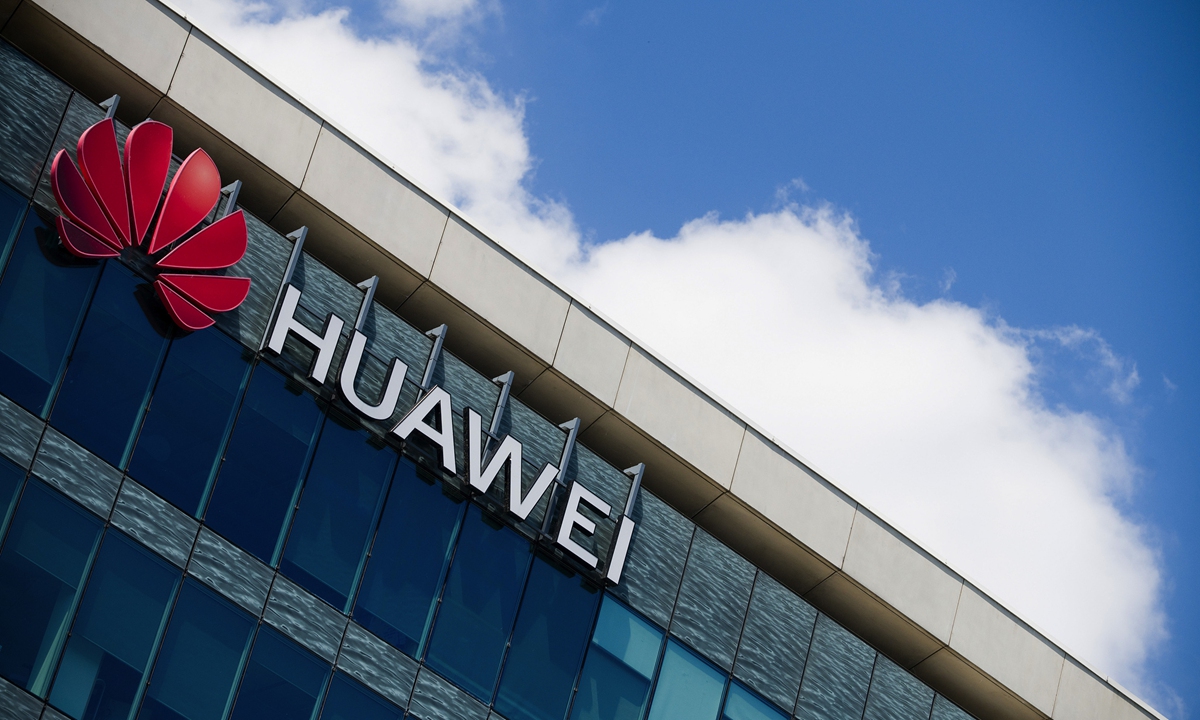Samsung, SK Hynix would suffer from cut in supply to Huawei: analyst
Source: Global Times Published: 2020/9/10 23:13:04

Huawei. Photo: VCG
South Korean firms Samsung Electronics and SK Hynix are reportedly applying for licenses from the US Department of Commerce to continue supplying memory chips for Huawei, a move that analysts said is for their own benefit instead of doing a "favor" for Huawei, as the loss of such a big customer would also mean big losses for them.
As the US chip ban draws near, it's not only a difficult time for Huawei; firms along the whole industry chain around the world are now facing a difficult time and some may struggle to survive.
"No one wants to lose a big customer like Huawei. Suppliers of the Chinese tech giant have either customized production lines for Huawei or set up plants in China to supply the firm," an industry insider, who asked to remain anonymous, told the Global Times on Thursday.
"To some extent, it's a 'ban' for all Huawei's suppliers, including Samsung and SK Hynix," the person said.
Following a string of restrictions implemented since last year, the US in August announced a tightened ban on non-US companies from selling components to Huawei that were developed with US technology, and asking these companies to obtain special approval from the US if they want to continue to supply the Chinese firm.
According to Korean news outlets, Samsung and SK Hynix will stop selling components to Huawei on September 15 if they cannot obtain a license.
Samsung said it "cannot comment on articles involving customers."
Sun Yuzhong, a researcher at the Institute of Computing Technology under the Chinese Academy of Sciences, told the Global Times on Thursday that the revenue of the two South Korean chip producers will drop a lot if they stop supplying Huawei.
The two firms each earn about 10 trillion won ($8.4 billion) annually by supplying DRAM and NAND flash components to Huawei, local media reports said. The Chinese tech giant is reportedly one of Samsung's top-five sources of revenue.
The South Korean companies certainly do not want to cut off the supply, but they are also worried that the Trump administration will pick on them, Xiang Ligang, director-general of the Beijing-based Information Consumption Alliance, told the Global Times on Thursday.
"We all believe Huawei is in trouble, but we don't believe Huawei will fall. Because Huawei is one of the world's largest mobile phone manufacturers, if you lose this partner, what opportunities do you have to grow?" said Xiang, adding that if the South Korean companies cut supplies for Huawei for a long time, they could lose the Chinese market altogether.
So they hope to take this opportunity to regain market share by "supporting" Huawei, analysts said.
The progress of the ban also "depends on the US presidential election in November," said Xiang, noting that the sanction on Huawei is not a very clear law and regulation, but an executive order by the government.
Huawei is still moving forward. On Thursday, it unveiled an updated HarmonyOS, its self-developed operating system, which is widely seen as an alternative to Google Android, and a direct response to the escalating US crackdown on its technology and supply chain
Moreover, Huawei recorded shipments of 105 million smartphones in the first half of 2020, with total revenue of 255.8 billion yuan ($37.4 billion), said Richard Yu Chengdong, CEO of Huawei's consumer businesses.
Most importantly, Huawei isn't sitting on its hands. The company is working with the government to build all the supply chain plants in China that Huawei needs to make parts for its products, a process that began when the company was first sanctioned by the US last year, experts said.
Global Times
Posted in: COMPANIES